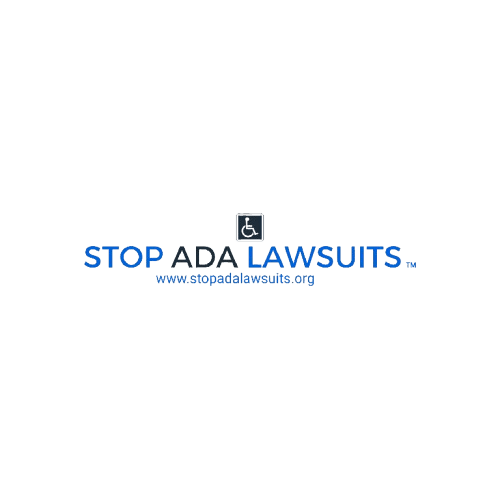California has become a hotspot for ADA (Americans with Disabilities Act) lawsuits, with businesses facing thousands of claims annually over accessibility violations. Many of these lawsuits target small businesses unaware of their legal obligations. This guide will break down California’s ADA compliance requirements, common pitfalls, and actionable steps to protect your business from costly litigation.
Understanding ADA Compliance in California
The ADA is a federal law, but California enforces stricter accessibility standards through:
- The Unruh Civil Rights Act: Allows plaintiffs to sue for up to $4,000 per violation + attorneys’ fees.
- California Building Code (CBC): Includes accessibility requirements that often exceed federal ADA standards.
- CASp Inspections: Certified Access Specialist (CASp) reports can provide legal protection if completed proactively.
Businesses must comply with both federal ADA Title III (public accommodations) and state laws. Even minor oversights—like misplaced signage or incorrect ramp slopes—can trigger lawsuits.
Common ADA Compliance Pitfalls in California
Most lawsuits target these recurring issues:
1. Parking Lot Violations
- Missing van-accessible spaces with proper signage and dimensions.
- Faded striping or incorrect ramp slopes leading to entrances.
2. Entrance and Pathway Barriers
- Doors requiring more than 5 pounds of force to open.
- Narrow pathways (less than 36 inches wide) obstructed by furniture or displays.
3. Restroom Accessibility
- Grab bars not installed in restroom stalls.
- Sink heights exceeding 34 inches or mirrors placed too high.
4. Counter and Checkout Areas
- No lowered (36-inch) section for wheelchair users at reception desks or POS systems.
5. Digital Accessibility
- Websites without screen reader compatibility or keyboard navigation (covered under WCAG 2.1 AA standards).
Why California Businesses Are Vulnerable to Lawsuits
- Serial Plaintiffs: A small group of plaintiffs file hundreds of lawsuits annually, often targeting small businesses.
- Statutory Damages: Unlike federal law, California allows plaintiffs to claim damages without proving intentional discrimination.
- No “Safe Harbor”: Even older buildings must meet current standards unless retrofitting is structurally impossible.
Example: A Los Angeles café was sued for $20,000 because its outdoor patio had a 1-inch step—deemed a “barrier” under state law.
How to Protect Your Business
1. Conduct an Accessibility Audit
- Hire a CASp inspector to identify violations. A CASp report grants you 90 days to fix issues if sued.
- Prioritize “high-risk” areas: parking, entrances, restrooms, and checkout counters.
2. Update Physical Spaces
- Install permanent ramps (slope ≤ 1:12) with handrails.
- Adjust restroom stalls to include grab bars and accessible sinks.
- Repaint parking spaces and ensure van-accessible spots are marked.
3. Fix Digital Accessibility
- Audit your website using tools like WAVE or AccessiBe.
- Add alt text to images, ensure keyboard navigation, and test screen reader compatibility.
4. Train Your Team
- Educate staff on ADA requirements (e.g., keeping pathways clear).
- Post accessibility notices (e.g., “Service animals welcome”) to demonstrate compliance efforts.
5. Legal Safeguards
- CASp Certification: Businesses with a pre-renovation CASp report gain a “qualified defendant” status in court.
- Settle Early: If sued, negotiate quickly—legal fees often exceed settlement costs.
Case Study: How a San Diego Retailer Avoided Lawsuits
A boutique store owner received a demand letter alleging restroom violations. By:
- Hiring a CASp inspector to document issues.
- Fixing grab bars and sink heights within 30 days.
- Adding an accessibility statement to their website.
The plaintiff dropped the case, and the business now uses the CASp report as a legal shield.
Key Takeaways
- ADA compliance is not optional—proactive fixes are cheaper than lawsuits.
- Focus on parking, entrances, restrooms, and digital access.
- CASp inspections and documentation are your best defenses.
Need Help?
Contact a Certified Access Specialist (CASp) or ADA compliance attorney to audit your property. Small fixes today can save thousands in legal fees tomorrow.

